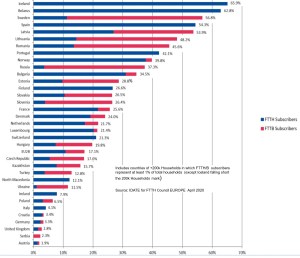 It may be over, but I have no intention of letting it go. It was far too good a week to forget. Indeed this week will linger long – not just in my memory but in the renewed public spirit that has been engendered.
It may be over, but I have no intention of letting it go. It was far too good a week to forget. Indeed this week will linger long – not just in my memory but in the renewed public spirit that has been engendered.
I’m not, of course, claiming to have been the first to notice.
To be honest I doubted my sanity in a week when the weirdness of Westminster gripped the nation. But I wrote my thoughts on Tuesday March 26th and then promptly placed them on ice. I was more than cautious – this was my first day of release from medical mayhem. It was highly likely that the new medication was warping my wishful thinking mind.
But the words could not be constrained and I published them the following day. Even then I hedged my bets for fear of immediate castigation. But I dared not hesitate – I sensed a great change was underway and, although the body politic, the media, the entrenched combatants, were all running on the same old tracks, I found it undeniable that relief was at hand.
Maybe it was the weather. Maybe it was the sheer relief from months of pain. Maybe it was a hymn of praise to the brilliant talents of our NHS. Maybe it was my odd early-morning choice of Leonard Cohen’s “You got me singing’. Whatever. This spirit of joy was unquenchable. ‘Everyone Suddenly Burst Out Singing’ captured exactly how I felt – and amazingly my little inconsequential networked world agreed!
By the end of the week even dedicated politicians were tentatively, cautiously, quietly suggesting a ‘change of tone’. They were pushing this forward even in the midst of outraged screams of betrayal by ardent Brexiteers.
But this is no time to stand down – the struggle is not yet done. In Tolkien’s The Hobbit (There and Back Again) Bilbo Baggins utters what would later became one of his favourite sayings. Bilbo had narrowly escaped from a very angry encounter with the dragon. “Never”, he said to himself, “Never poke fun at live dragons – you’re not halfway through this adventure yet.”
And that was a very timely thought. It would have been too easy to ridicule. Too easy to pour scorn on those in pain. Too easy to not understand the deep roots of their desperate delusions. Too easy to crow. Far too easy to seek vengeance. Even slightly (or grossly) demented dragons need and deserve our help.
All at sea?
We are, still, only halfway though this adventure. The tone has changed, the tide is turning but renewed purpose has not yet been confirmed. I’ve been sailing offshore when a storm has devastated the plan. The ship is damaged, the crew scared witless. There is no going back. This is the time for renewed purpose – a new destination. Only a few alternatives come easily to mind – but my crew need, more than anything, clear intent to deliver us safely home.
The hand on the helm may be uncertain but the crew can pull together. Time now to steady the ship and seek that new unifying purpose. Let the restoration of sanity and purposeful survival now flow through the life-blood of our nations.
(and here endeth the lesson for Mothering Sunday!)
Tags: empowerment, policy, resilience, sustainability


